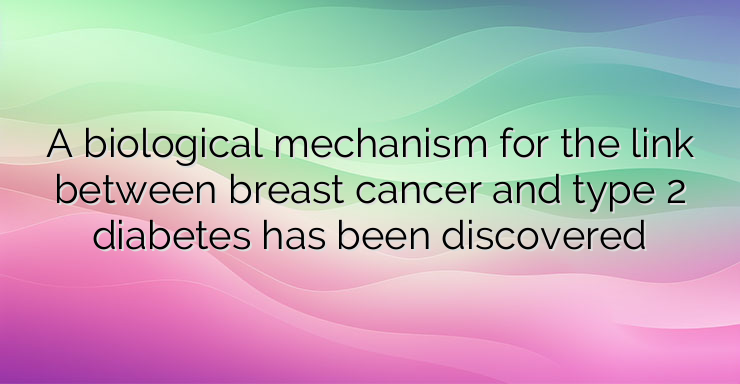Researchers have discovered a biological mechanism that links breast cancer and type 2 diabetes. This connection is already known from previous research. Women with diabetes, for example, have a 20-27% higher risk of developing breast cancer. Insulin resistance – a key feature of diabetes – is associated with an increased incidence of breast cancer and reduced survival. Population studies show that the risk of diabetes begins to increase two years after a breast cancer diagnosis. By 10 years after diagnosis, the risk is 20% higher in breast cancer survivors than in women of the same age without a diagnosis of breast cancer. In a new study published May 30, 2022 in Nature Cell Biology, a research team led by scientists at the University of California, San Diego School of Medicine has shown a possible biological mechanism linking the two diseases, in which breast cancer suppresses the production of insulin, leading to diabetes, and impaired blood sugar control promotes tumor growth. This study found how breast cancer cells damage the function of pancreatic cells to make them produce less insulin than needed, leading to higher blood sugar levels in breast cancer patients. compared to women without cancer. The reason for this, the researchers point out, is extracellular vesicles – EVs – hollow spheres secreted or released by cells that transport DNA, RNA, proteins, fats and other substances between cells. In this case, cancer cells were found to secrete microRNA-122 into vesicles. When the vesicles reach the pancreas, they can enter the islet cells responsible for insulin production, distribute their microRNA-122 content, and damage the islets’ critical function of maintaining normal blood glucose levels. Cancer cells use more glucose than healthy cells to fuel tumor growth, and this is the basis for PET scans to detect cancer. By increasing blood glucose that can be easily used by cancer cells, breast tumors feed themselves while depriving healthy cells of this essential nutrient. The research was conducted using laboratory models in which slow-release insulin preparations, or drugs to lower blood glucose levels known as SGLT2 inhibitors, were found to restore normal glucose control in the presence of a breast tumor, which from in turn suppresses tumor growth. These findings support a greater need for diabetes screening and prevention among breast cancer patients. The miR-122 inhibitor developed by Regulus Therapeutics Inc. in San Diego, is currently in clinical trials as a potential treatment for chronic hepatitis C. It has been foundthat it is effective in restoring normal insulin production and suppressing tumor growth in laboratory models of breast cancer. These miR-122 inhibitors, which are the first miRNA-based drugs to enter clinical trials, may have a future in breast cancer therapy, the researchers said. Breast cancer is the second most diagnosed malignancy after some types of skin cancer. It is also a fact that the number of cases of type 2 diabetes is increasing globally. References: https://medicalxpress.com/news/2022-05-paired-perils-breast-cancer-diabetes.html https://dx.doi.org/10.1038/s41556-022-00919-7 https:// www.nature.com/articles/s41556-022-00919-7


Leave a Reply